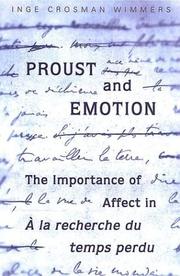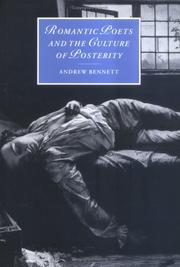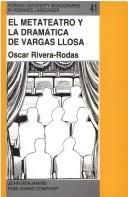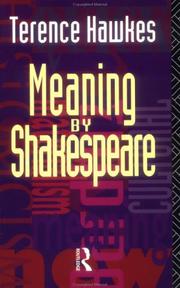| Listing 1 - 9 of 9 |
Sort by
|
Book

ISBN: 2869064802 2869062109 Year: 2017 Publisher: Tours : Presses universitaires François-Rabelais,
Abstract | Keywords | Export | Availability | Bookmark
 Loading...
Loading...Choose an application
- Reference Manager
- EndNote
- RefWorks (Direct export to RefWorks)
L’Allusion et L’Accès follows on from work previously published in GRAAT, in particular Usure et Rupture – Breaking Points (GRAAT 13) and Fonctions du Cliché – Du Banal à la Violence (GRAAT 16). The present conference aimed to articulate the strategies that the literary text deploys to access the unsayable, whilst, simultaneously, keeping in mind the notion of play contained in the etymology of allusion: alludere. Allusion and Access, then, are two vast subjects put into juxtaposition and perspective. Allusion sets up various mechanisms of expression by Indirection while Access gives some sort of Direction although one might not know to where the direction is leading. To Allude means to say something by other means. What is that otherness which one chooses to name by substitution? What is the fundamental otherness to which access leads us, when one is dealing with meaning and is left with language as the only tool? Allusion will be understood as metaphoric play. The receiver is expected to know what the game is all about. As Pizzorusso has well said: «La notion d’allusion demande, ou demanderait, une vaste enquête : le mot, l’idée, la pratique de l’allusion.» Access meanwhile means “to reach” in terms of a path, a progress, implying a hermeneutic search. L’Allusion et L’Accès fait suite à des travaux déjà publiés dans GRAAT, notamment Usure et Rupture - Breaking Points (GRAAT 13) et Fonctions du Cliché - Du Banal à la Violence (GRAAT 16). La présente conférence visait à articuler les stratégies que le texte littéraire déploie pour accéder à l’indicible, tout en gardant à l’esprit la notion de jeu contenue dans l’étymologie de l’allusion : alludere. Allusion et Accès sont donc deux vastes sujets mis en juxtaposition et en perspective. L’allusion met en place divers mécanismes d’expression par l’Indirection tandis que l’Accès donne une sorte de Direction bien que l’on puisse ne pas savoir vers où la direction mène. Faire allusion signifie dire quelque chose par…
Literature (General) --- allusion --- esthétique --- lecture --- esthétique de la réception

ISBN: 3110144255 3110813556 3111750558 9783110813555 9783110144253 Year: 1995 Volume: 122 Publisher: Berlin Mouton de Gruyter
Abstract | Keywords | Export | Availability | Bookmark
 Loading...
Loading...Choose an application
- Reference Manager
- EndNote
- RefWorks (Direct export to RefWorks)
No detailed description available for "A Rhetoric of Silence and Other Selected Writings".
Esthétique de la réception --- Reader-response criticism --- Semeiotics --- Semiology (Linguistics) --- Semiotics --- Semiotiek --- Sémiologie --- Sémiotique --- Séméiologie --- Séméiotique --- Reader-response criticism. --- Semiotics. --- Reader-oriented criticism --- Reception aesthetics --- Semantics --- Signs and symbols --- Structuralism (Literary analysis) --- Criticism --- Reading

ISBN: 0802087272 9786611996499 1442678860 1281996491 9781442678866 9781281996497 9780802087270 Year: 2003 Volume: *81 Publisher: Toronto
Abstract | Keywords | Export | Availability | Bookmark
 Loading...
Loading...Choose an application
- Reference Manager
- EndNote
- RefWorks (Direct export to RefWorks)
In Proust and Emotion, Inge Crosman Wimmers proposes a new approach to A la recherche du temps perdu that centres on the role of affect. Through close reading of the hero-narrator's personal history, the author shows how emotional paradigms (especially separation anxiety), involuntary memory, and other compelling impressions give focus and structure to Proust's novel. Drawing on reader-oriented and emotion theories, she shows how affect commands the attention of the 'motivated reader' and is crucial to the process of self-understanding for both the narrator and the reader. This is the first extensive study in English to take fully into consideration the drafts (esquisses) published in the new Pleiade edition of the novel, the Mauriac edition of Albertine disparue, and material from the unpublished Proust manuscripts - all of which shed further light on the importance of affect in A la recherche. Proust and Emotion will appeal to readers interested in an approach to Proust that combines insights from philosophy, psychology, and literary aesthetics and in a poetics of reading that pays particular attention to emotion.
Emoties in de literatuur --- Emotions dans la littérature --- Emotions in literature --- Esthétique de la réception --- Reader-response criticism --- Emotions in literature. --- Reader-response criticism. --- Reader-oriented criticism --- Reception aesthetics --- Criticism --- Reading --- Proust, Marcel, --- Criticism and interpretation. --- Proust, Marcel --- Criticism and interpretation --- Prust, Marselʹ, --- Proust, Valentin Louis Georges Eugène Marcel, --- Pʻŭrusŭtʻŭ, Marŭsel, --- Pʻu-lu-ssu-tʻe, --- Пруст, Марсель, --- פרוסט, מארסל --- פרוסט, מרסל --- ,פרוסט, מרסל --- بروست، مارسيل،, --- À la recherche du temps perdu (Proust, Marcel)
Book
ISBN: 9781905670543 1905670540 9781905670550 1905670559 Year: 2013 Volume: 126 Publisher: London : University of London Press,
Abstract | Keywords | Export | Availability | Bookmark
 Loading...
Loading...Choose an application
- Reference Manager
- EndNote
- RefWorks (Direct export to RefWorks)
Questions of ethnic and cultural identities are central to the contemporary understanding of the Roman world. The expansion of Rome across Italy, the Mediterranean, and beyond entailed encounters with a wide range of peoples. Many of these had well-established pre-conquest ethnic identities which can be compared with Roman perceptions of them. In other cases, the ethnicity of peoples conquered by Rome has been perceived almost entirely through the lenses of Roman ethnographic writing and administrative structures. The formation of such identities, and the shaping of these identities by Rome, was a vital part of the process of Roman imperialism. Comparisons across the empire reveal some similarities in the processes of identity formation during and after the period of Roman conquest, but they also reveal a considerable degree of diversity and localisation in interactions between Romans and others. This volume explores how these practices of ethnic categorisation formed part of Roman strategies of control, and how people living in particular places internalised them and developed their own senses of belonging to an ethnic community. It includes both regional studies and thematic approaches by leading scholars in the field--Publisher website.
Greek drama --- Latin drama --- Reader-response criticism. --- Classical drama --- Théâtre grec --- Théâtre latin --- Esthétique de la réception --- Théâtre ancien --- History and criticism. --- Appreciation --- Histoire et critique --- Appréciation --- Reader-response criticism --- Classical literature --- History and criticism --- Théâtre grec --- Théâtre latin --- Esthétique de la réception --- Théâtre ancien --- Appréciation --- Greek drama - History and criticism --- Latin drama - History and criticism --- Classical literature - History and criticism --- Ethnicity. --- Rome --- History

ISBN: 0521641446 051105159X 1280153644 0511309538 0511484100 0511149239 0511117302 1107111269 0511007396 9780511007392 0511036353 9780511036354 9780511149238 9780511051593 9780511117305 9780521641449 9780511484100 9780521026895 052102689X 9781107111264 9781280153648 9780511309533 Year: 1999 Volume: 35 Publisher: Cambridge Cambridge University press
Abstract | Keywords | Export | Availability | Bookmark
 Loading...
Loading...Choose an application
- Reference Manager
- EndNote
- RefWorks (Direct export to RefWorks)
This 1999 book examines the way in which the Romantic period's culture of posterity inaugurates a tradition of writing which demands that the poet should write for an audience of the future: the true poet, a figure of neglected genius, can be properly appreciated only after death. Andrew Bennett argues that this involves a radical shift in the conceptualization of the poet and poetic reception, with wide-ranging implications for the poetry and poetics of the Romantic period. He surveys the contexts for this transformation of the relationship between poet and audience, engaging with issues such as the commercialization of poetry, the gendering of the canon, and the construction of poetic identity. Bennett goes on to discuss the strangely compelling effects which this reception theory produces in the work of Wordsworth, Coleridge, Keats, Shelley and Byron, who have come to embody, for posterity, the figure of the Romantic poet.
Authors and readers --- Ecrivains et lecteurs --- Esthétique de la réception --- Reader-response criticism --- Schrijvers en lezers --- Romanticism --- -English poetry --- -English literature --- Pseudo-romanticism --- Romanticism in literature --- Aesthetics --- Fiction --- Literary movements --- Reader-oriented criticism --- Reception aesthetics --- Criticism --- Reading --- Readers and authors --- Authorship --- History and criticism --- -History and criticism --- Authors and readers. --- English poetry. --- English poetry - 19th century - History and critic. --- Reader-response criticism. --- Romanticism. --- English poetry --- English Literature --- English --- Languages & Literatures --- Theory, etc --- Theory, etc. --- -Reader-oriented criticism --- English literature --- History and criticism&delete& --- 19th century --- Great Britain --- Reader response criticism. --- Arts and Humanities --- Literature
Book
ISSN: 09859446 ISBN: 9782859445492 2859445498 2859448179 Year: 2006 Volume: 14 Publisher: Éditions de la Sorbonne
Abstract | Keywords | Export | Availability | Bookmark
 Loading...
Loading...Choose an application
- Reference Manager
- EndNote
- RefWorks (Direct export to RefWorks)
Contribution à une histoire culturelle de l'architecture, cet ensemble d'études s'attache à explorer les différents aspects de la réception dans le temps des bâtiments de la période contemporaine.
Architecture --- Architectural criticism --- Reader-response criticism --- Critique d'architecture --- Esthétique de la réception --- Appreciation --- History --- Appréciation --- Histoire --- Art, Architecture & Applied Arts --- Esthétique de la réception --- Appréciation --- Image de la ville --- Tour --- Bâtiment d'habitation collectif --- Rapport art-architecture --- Bâtiment hospitalier --- Presse --- Eclectisme --- Logement social --- Perception de l'architecture --- Bâtiment d'exposition --- Critique architecturale --- Exposition --- Mort --- Image de l'architecture --- Protection du patrimoine --- Référence architecturale --- Histoire de l'architecture --- Académisme --- Chauffage --- Concours --- Le Corbusier --- Simounet, Roland --- Prouvé, Jean --- Chandigarh --- Suisse --- Berlin --- Ecosse --- Athènes --- Le Corbusier, --- Le Corbusier, Charles-Edouard Jeanneret, --- History. --- Le Corbusier, Charles-Edouard Jeanneret, 1887-1965 --- histoire de l'architecture --- réception de l'oeuvre --- architecture contemporaine
Book
ISBN: 0691631107 1400862272 0691601399 0691015163 0691069255 9781400862276 9780691631103 Year: 1991 Publisher: Princeton, N.J. Princeton University Press
Abstract | Keywords | Export | Availability | Bookmark
 Loading...
Loading...Choose an application
- Reference Manager
- EndNote
- RefWorks (Direct export to RefWorks)
Stephen Railton's study of the American Renaissance proposes a fresh way of conceiving the writer as a performing artist and the text as an enactment of the drama of its own performance. Railton focuses on how major prose works of the period are preoccupied with their readers--how they seek to negotiate the conflicted space between the authors, who brought to the act of publication their own anxieties of ambition and identity, and the contemporary American reading public, which, as a growing mass audience in a democracy, had acquired an unprecedented authority over the terms of literary performance. New readings of Emerson's orations, Poe's tales, the sketches of the Southwest Humorists, Walden, Uncle Tom's Cabin, The Scarlet Letter, and Moby-Dick relocate American writers in the dramatic context in which they suffered and thrived. The book attends closely to historicist issues, arguing that one of the most profound ways that the culture shaped these texts was also the most immediate--as the audience each writer had to address. Equally concerned with biographical themes, it appreciates each of the major works within the larger pattern of the writer's public career and private needs.Originally published in 1991.The Princeton Legacy Library uses the latest print-on-demand technology to again make available previously out-of-print books from the distinguished backlist of Princeton University Press. These editions preserve the original texts of these important books while presenting them in durable paperback and hardcover editions. The goal of the Princeton Legacy Library is to vastly increase access to the rich scholarly heritage found in the thousands of books published by Princeton University Press since its founding in 1905.
Esthétique de la réception --- American prose literature --- Prose américaine --- Ecrivains et lecteurs --- Prose américaine --- Esthétique de la réception --- American literature --- anno 1800-1899 --- Authors and readers --- Authorship --- Reader-response criticism --- History and criticism. --- History --- Art d'écrire --- History and criticism --- Histoire et critique --- Histoire --- 19th century --- United States --- Emerson, Ralph Waldo --- Criticism and interpretation --- Thoreau, Henry David --- Stowe, Harriet Elizabeth Beecher --- Hawthorne, Nathaniel --- Poe, Edgar Allan --- Melville, Herman --- LITERARY CRITICISM / American / General. --- Reader-oriented criticism --- Reception aesthetics --- Criticism --- Reading --- Authoring (Authorship) --- Writing (Authorship) --- Literature

ISBN: 902721767X 1556193114 9027217688 1556193106 9786613358530 1283358530 9027277311 9789027277312 9781283358538 Year: 1992 Volume: vol 41 Publisher: Amsterdam/Philadelphia John Benjamins Pub. Co.
Abstract | Keywords | Export | Availability | Bookmark
 Loading...
Loading...Choose an application
- Reference Manager
- EndNote
- RefWorks (Direct export to RefWorks)
Rivera-Rodas proposes a new concept about what he calls the poetics of the theatrical reception. The discussion of this phenomenon, which also deals with metatheater, focuses on the dramatic work of Mario Vargas Llosa. Examination of the complex relationships of contemporary dramatic structures provides a new definition of metatheater and its effects on the public. Metatheater is shown as a semiotic result not theatrically representable, since it takes place only in the spectator's perceptible experience. Therefore, it does not exist prior to the theatrical or reading reception, nor is it pres
Critique théâtrale --- Dramatic criticism --- Esthétique de la réception --- Reader-response criticism --- Theater audiences --- Theaterkritiek --- Theaterpubliek --- Théâtre--Spectateurs --- Toneel--Toeschouwers --- Toneelpubliek --- Drama --- Reader-response criticism. --- Dramatic criticism. --- Theater audiences. --- Explication. --- Vargas Llosa, Mario, --- Dramatic works. --- Technique. --- Explication --- Vargas Llosa, Mario --- Dramatic works --- Technique --- Audiences, Theater --- Theater --- Theatergoers --- Performing arts --- Theater attendance --- Theater criticism --- Criticism --- Reader-oriented criticism --- Reception aesthetics --- Reading --- Audiences --- Vargas, Mario --- Llosa, Mario Vargas --- Vargas Llosa, M. --- Llosa, M. Vargas --- Varguitas --- Vargas Lʹosa, Mario --- Lʹosa, Mario Vargas --- Вагас ЛЬоса, Марио --- Варгас Льоса, Марио --- ורגס יוסה, מאריו, --- ורגס יוסה, מריו, --- יוסה, מריו ורגס, --- يوسا,ماريو فارغاس,

ISBN: 0415074509 0415074517 0203376293 1138466972 0203359534 1134905009 1280057041 9780203359532 9780415074506 6610057044 9786610057047 9780415074513 9781138466975 9781134905003 9781280057045 Year: 1992 Publisher: London Routledge
Abstract | Keywords | Export | Availability | Bookmark
 Loading...
Loading...Choose an application
- Reference Manager
- EndNote
- RefWorks (Direct export to RefWorks)
We traditionally assume that the `meaning' of each of Shakespeares plays is bequeathed to it by the Bard. It is as if, to the information which used to be given in theatrical programmes, `Cigarettes by Abdullah, Costumes by Motley, Music by Mendelssohn', we should add `Meaning by Shakespeare'. These essays rest on a different, almost opposite, principle. Developing the arguments of the same author's That Shakespearean Rag (1986), they put the case that Shakespeare's plays have no essential meanings, but function as resources which we use to generate meaning. A Midsummer Night'
Reader-response criticism --- Shakespeare, William, --- Criticism and interpretation --- Meaning (Philosophy) in literature. --- Reader-response criticism. --- Meaning (Philosophy) in literature --- Reader-oriented criticism --- Reception aesthetics --- Criticism --- Reading --- Šekspir, Vil'jam --- Criticism and interpretation. --- Shakespeare, William --- Shakespear, William, --- Shakspeare, William, --- Šekʻspiri, Uiliam, --- Saixpēr, Gouilliam, --- Shakspere, William, --- Shikisbīr, Wilyam, --- Szekspir, Wiliam, --- Šekspyras, --- Shekspir, Vilʹi︠a︡m, --- Šekspir, Viljem, --- Tsikinya-chaka, --- Sha-shih-pi-ya, --- Shashibiya, --- Sheḳspir, Ṿilyam, --- Shaḳspir, Ṿilyam, --- Syeiksŭpʻio, --- Shekspir, V. --- Szekspir, William, --- Shakespeare, Guglielmo, --- Shake-speare, William, --- Sha-ō, --- Şekspir, --- Shekspir, Uiliam, --- Shekspir, U. --- Šekspir, Vilijam, --- Ṣēkspiyar, Viliyam, --- Shakspir, --- Shekspyr, Vyli︠e︡m, --- Şekspir, Velyam, --- Ṣēkspiyar, Villiyam, --- Shēkʻspʻiyr, Vlilliam, --- Ṣēkspiyar, --- Ṣēkspiyar Mahākavi, --- Ṣēkspiyar Mahākaviya, --- Sheḳspier, Ṿilyam, --- Shēkʻspir, --- Shakespeare, --- Śeksper, --- Шекспир, Вильям, --- Шекспир, Уильям, --- שייקספיר, וויליאם, --- שייקספיר, וו., --- שיקספיר, וויליאם --- שיקספיר, ויליאם --- שיקספיר, ויליאם, --- שכספיר, ויליאם, --- שכספיר, וילים, --- שכספיר, ו׳ --- שעפקספיר, וויליאם, --- שעקספיער, וויליאם --- שעקספיער, וויליאם, --- שעקספיער, ווילליאם --- שעקספיער, וו., --- שעקספיר --- שעקספיר, וו --- שעקספיר, וויליאם, --- שעקספיר, וויליאמ --- שעקספיר, ווילליאם --- שעקספיר, ווילליאם, --- שעקספיר, וו., --- שעקספיר, װיליאם, --- שעקספיר, װילליאם, --- שעקספיר, װ., --- שעקספער --- שעקספער, וויליאמ --- שקספיר --- שקספיר, וו --- שקספיר, וויליאם --- שקספיר, וויליאם, --- שקספיר, ווילים, --- שקספיר, וילאם --- שקספיר, ויליאם --- שקספיר, ויליאם, --- שקספיר, ויליים, --- שקספיר, וילים --- שקספיר, וילים, --- شاكسبير، وليم --- شاكسپير، وليم --- شكسبير، وليام --- شكسبير، وليم --- شكسبير، وليم، --- شكسبير، و. --- شكسپير، وليم --- شكسپير، ويليام --- شيكسبير، وليام --- شيكسبير، وليام.، --- شيكسبير، وليم --- شکسبير، وليم --- وليم شکسبير --- 沙士北亞威廉姆, --- 沙士比亞威廉姆, --- 莎士比亞威廉姆, --- 莎士比亞威廉, --- 莎士比亞, --- Shakespeare, William, - 1564-1616 - Criticism and interpretation --- SHAKESPEARE, WILLIAM (1564-1616) --- SIGNIFICATION (PHILOSOPHIE) DANS LA LITTERATURE --- ESTHETIQUE DE LA RECEPTION --- CRITIQUE ET INTERPRETATION --- Shakespeare, William, - 1564-1616
| Listing 1 - 9 of 9 |
Sort by
|

 Search
Search Feedback
Feedback About UniCat
About UniCat  Help
Help News
News